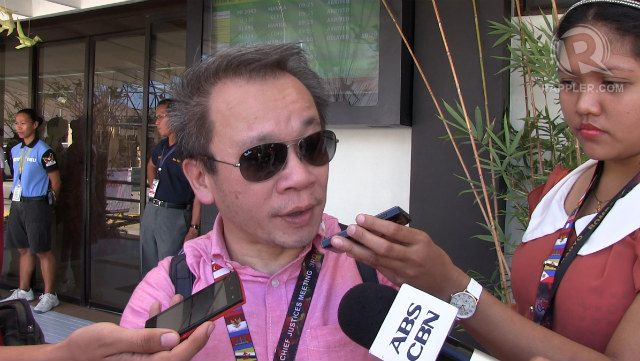SUMMARY
This is AI generated summarization, which may have errors. For context, always refer to the full article.

BORACAY, Philippines – Supreme Court spokesperson Theodore Te stressed the importance of efficient courts in the move towards a free flow of goods, services, and skilled labor among member-states of the Association of Southeast Asian Nations (ASEAN).
Te explained that transparent judicial processes “boost confidence of investors who want to come in,” an important factor as the bloc gears up for economic integration.
“If your courts are better or more efficient, mas nakatutulong (that will be of better help),” Te told reporters here on Sunday, March 1, as top judicial officials from across the region arrived at Caticlan airport in Aklan.
He said a clear portal for litigants, understandable court regulations, and a predictable system once cases are filed are vital to the envisioned ASEAN economic community.
The Philippines is hosting the 3rd ASEAN Chief Justices Meeting from March 1 to 3 here in Boracay island, a top tourist destination. (READ: ASEAN chief justices meet PH as bloc gears up for integration)
The event’s highlight – a high-level meeting among the chief justices set Monday morning, March 2 – will tackle good judicial practices in the region, including technology upgrade for court services, case management techniques, and approaches to cross-border threats against the administration of justice.
“What ASEAN wants to do is to make sure everyone is on the same page. [There will be] sharing of information, sharing of technology… without, of course, removing the independence of each court,” he said.
“Knowing how each judiciary works across the ASEAN will certainly help. Exchange of information is never wrong,” Te added.
In the Philippines, state figures from 2005-2010 show lower courts were confronted with an annual average caseload of more than one million – equivalent to an average of around 4,221 cases per working day.
The heavy volume of caseload also adds to the delays, which Chief Justice Maria Lourdes Sereno wants eased through an automated system that manages cases from filing to judgment.
Sereno envisions the electronic system to be implemented across all Philippine courts as part of her reform agenda. She believes this will lessen the likelihood for corruption and human error in courts. (READ: Sereno lone female justice in ASEAN meeting) – Rappler.com
Add a comment
How does this make you feel?
There are no comments yet. Add your comment to start the conversation.